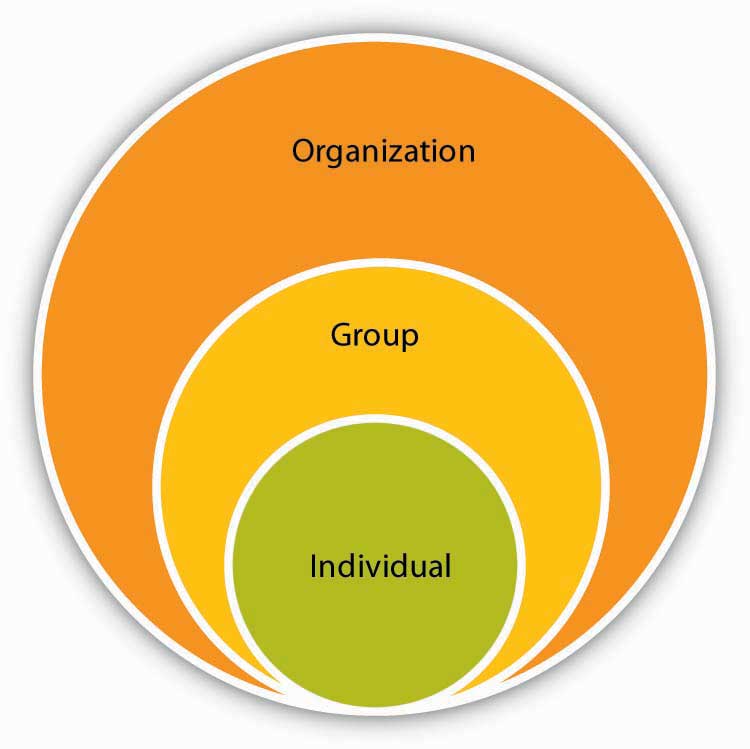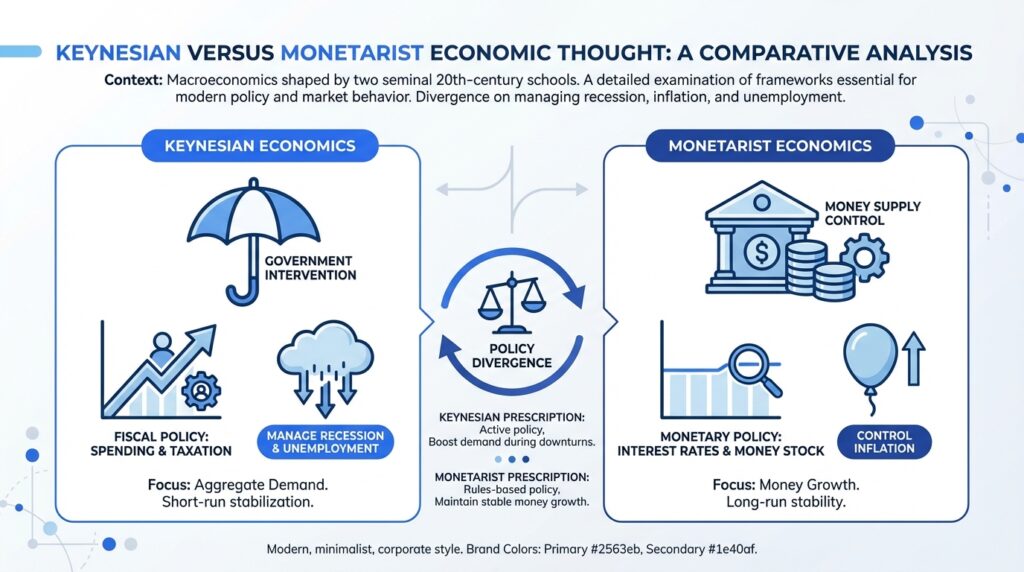Welcome to our blog post on Organisational Behaviour Theories! In today’s dynamic and ever-changing business environment, understanding how individuals and groups behave within organisations is crucial for success. Organisational behaviour theories provide valuable insights into human behaviour, decision-making, and leadership within an organisational context.
Understanding Organisational Behaviour Theories
Organisational behaviour theories play a crucial role in understanding the dynamics within an organisation and how individuals behave within it. By exploring and studying these theories, organisations can gain valuable insights into improving decision-making and overall effectiveness. Let’s delve into some of the main theories in organisational behaviour and how they can be helpful:
What are the main theories in organisational behaviour, and how are they useful?
Several critical theories in organisational behaviour provide frameworks for understanding human behaviour within organisations. Some of the prominent ones include:
- The Systems Theory: This theory examines organisations as interconnected systems and emphasises the importance of understanding the relationships between various components.
- The Social Exchange Theory: This theory highlights the exchange of resources and benefits between individuals within an organisation, influencing their behaviour and relationships.
- The Contingency Theory: This theory emphasises that the effectiveness of organisational practices and strategies depends on the alignment between the characteristics of the situation and the actions taken.
These theories provide valuable insights into the complexities of organisational behaviour and assist in identifying patterns, predicting behaviour, and making informed decisions.
How can understanding organisational behaviour theories contribute to effective decision-making?
By understanding organisational behaviour theories, decision-makers can analyse and interpret the factors that influence individual and group behaviour within their organisation. This knowledge enables them to make informed decisions that align with the goals and values of the organisation, leading to more effective outcomes. Moreover, by understanding the various theories, decision-makers can identify potential challenges, conflicts, or opportunities within the organisation and develop strategies to address them.
The Importance of Organisational Behaviour Theories
Organisational behaviour theories play a crucial role in studying and understanding how individuals and groups behave within organisations. By examining and applying these theories in practice, organisations can enhance their decision-making processes and optimise their overall performance.
Why is it essential for organisations to study and apply organisational behaviour theories?
Organisations are complex systems of individuals with different motivations, needs, and behaviours. By studying organisational behaviour theories, organisations gain insights into the underlying factors influencing employee behaviour and performance. This knowledge helps organisations develop effective strategies to manage and motivate their workforce, leading to improved employee engagement and, ultimately, better organisational outcomes.
How can organisational behaviour theories help improve employee engagement and productivity?
Organisational behaviour theories provide a framework for understanding the dynamics of employee engagement and productivity. Organisations can improve employee engagement and performance by considering factors like motivation, job satisfaction, and leadership styles. They can then implement specific interventions based on these factors. Organisations can increase employee engagement and productivity by connecting their values and goals with those of the employees and offering opportunities for skill development and recognition.
Utilising Organisational Behaviour Theories in Practice
Applying organisational behaviour theories in the workplace involves translating theoretical concepts into practical strategies and actions. Some practical ways to apply organisational behaviour theories include:
- Designing and implementing effective communication channels to foster collaboration and teamwork.
- Design training programs to cater to the diverse learning styles and preferences of employees, ensuring maximum engagement and effectiveness.
- Implementing performance management systems that provide regular feedback and recognition.
- Creating a positive, inclusive organisational culture that values diversity and encourages innovation.
Organisations can create a more supportive and productive work environment by incorporating organisational behaviour theories into leadership and management practices.
Organisational Behaviour and Employee Engagement
Applying organisational behaviour theories in the workplace can significantly improve employee engagement and overall productivity. Here are some practical ways to incorporate these theories into your everyday practices:
- Embrace diversity: Recognise and value your employees’ diverse backgrounds, perspectives, and skills. Encourage collaboration and create an inclusive work environment.
- Strengthen communication: Foster open and transparent communication channels within the organisation. Encourage feedback, active listening, and practical communication skills.
- Encourage teamwork: Promote a culture of collaboration and teamwork. Foster an environment where employees feel empowered to share ideas, work together, and support one another.
- Implement performance management: Utilize systems that align with organisational behaviour theories. Set clear goals, provide regular feedback, and recognise and reward achievements.
- Develop influential leaders: Train leaders who understand and apply organisational behaviour theories. Provide leadership development programs that foster emotional intelligence, build relationships, and motivate employees.
- Promote work-life balance: Recognize the importance of work-life balance in maintaining employee well-being and satisfaction. Offer flexible work arrangements and promote healthy work-life integration.
By implementing these strategies and techniques, you can effectively utilise organisational behaviour theories to create a positive work environment and enhance employee performance.
Key Concepts and Frameworks of Organisational Behaviour Theories
Organisational behaviour theories are built upon several key concepts and frameworks that help understand human behaviour within organisations. These concepts and frameworks provide insights into various aspects of organisational functioning and can be used to develop effective strategies for managing and leading employees.
1. Individual Differences
One of the fundamental concepts in organisational behaviour theories is recognising that individuals differ in their personalities, values, attitudes, and beliefs. Understanding these individual differences can help organisations create a diverse and inclusive workplace where each employee’s unique perspectives and strengths are valued.
2. Motivation
The concept of motivation explores what drives individuals to perform specific actions or behaviours in the workplace. Different organizational behavior theories focus on various motivational theories, like Maslow’s Hierarchy of Needs and Herzberg’s Two-Factor Theory. These theories help identify and deal with the factors that affect employee motivation.
3. Communication
Effective communication is essential for successful organisational functioning. Organisational behaviour theories emphasise the importance of transparent and open communication channels within a workplace. Understanding communication patterns and barriers can help organisations develop strategies to improve communication flow and promote a positive and collaborative work environment.
4. Leadership and Management Styles
Another critical concept in organisational behaviour theories is leadership and management styles. Different leadership styles, such as autocratic, democratic, and transformational leadership, can significantly impact employee satisfaction, engagement, and productivity. By understanding these different styles, organisations can adopt approaches that align with their goals and values.
5. Organisational Culture
Organisational behaviour theories also focus on organisational culture, which refers to the shared values, beliefs, and norms that shape an organisation’s behaviour. Understanding and shaping corporate culture can help create a positive work environment and foster employees’ sense of belonging and commitment.
6. Group Dynamics
The dynamics of groups and teams within an organisation can significantly influence how work is accomplished. Organisational behaviour theories examine how group dynamics, such as communication patterns, conflict resolution strategies, and decision-making processes, impact team performance. By understanding these dynamics, organisations can promote effective teamwork and collaboration.
7. Change Management
Change is a constant in organisations, and successful change management is crucial for organisational growth and adaptation. Organisational behaviour theories provide frameworks for understanding how individuals and teams respond to change and how organisations can effectively manage change initiatives to minimise resistance and maximise acceptance.
8. Ethical Behaviour
Organisational behaviour theories also emphasise the importance of ethical behaviour within organisations. Concepts like ethical decision-making and corporate social responsibility guide organisations in establishing ethical standards and practices that promote fairness, integrity, and social responsibility.
By understanding and applying these key concepts and frameworks, organisations can gain valuable insights into human behaviour in the workplace and develop strategies to enhance employee engagement, productivity, and overall organisational effectiveness.
Applying Organisational Behaviour Theories to Enhance Employee Performance
Understanding organisational behaviour theories can be valuable in improving employee performance and motivation. By applying these theories, organisations can create a supportive and productive work environment that encourages optimal performance from their employees.
Using knowledge of organisational behaviour theories to motivate and improve employee performance
One way to utilise organisational behaviour theories is by applying motivational theories to inspire employees to perform at their best. For example, implementing goal-setting approaches can help employees set challenging yet attainable targets, giving them a sense of purpose and direction in their work.
Additionally, expectancy theory can be applied to reinforce the belief that effort leads to successful performance and will result in desired rewards and outcomes. Employee motivation and performance can be enhanced by aligning employee efforts with organisational goals and providing meaningful tips.
Incorporating organisational behaviour theories into performance management
Performance management systems can benefit from the application of organisational behaviour theories. By considering theories such as equity theory or reinforcement theory, organisations can design performance management processes that are fair, transparent, and rewarding.
For instance, equity theory suggests that employees compare their inputs (e.g., effort, skills) and outcomes (e.g., rewards, recognition) with their peers. To enhance employee performance, organisations can ensure that the inputs and outputs are perceived as equitable, fostering a positive work environment and encouraging higher performance levels.
Incorporating reinforcement theory can involve utilising positive reinforcement, such as rewards or recognition, to reinforce desired behaviours and increase employee engagement and performance. Conversely, organisations can leverage punishment or negative consequences for undesirable behaviours, promoting a culture of accountability and continuous improvement.
By incorporating these organisational behaviour theories into performance management practices, organisations can systematically enhance employee performance and contribute to overall organisational success.
The Role of Organisational Behaviour Theories in Leadership Development
Understanding organisational behaviour theories is crucial for developing influential leaders within organisations. By grasping these theories, leaders can gain valuable insights into human behaviour in the workplace and use this knowledge to enhance their leadership styles and strategies.
Contributions to Leadership Development
Organisational behaviour theories provide leaders a framework for understanding how individuals and groups function within an organisational setting. By studying these theories, leaders can:
- Gain insight into the motivations, attitudes, and behaviour patterns of employees
- Develop effective communication and interpersonal skills
- Understand the impact of organisational culture and values on leadership
- Identify and address potential conflicts or challenges within teams
Furthermore, these theories help leaders recognise the importance of adapting their leadership styles to fit different situations and individuals. Leaders can create a positive and productive work environment by considering their team members’ diverse needs and preferences.
Alignment with Leadership Theories and Models
Several leadership theories and models align with organisational behaviour theories, reinforcing the significance of studying and applying these concepts in leadership development. Some notable ideas and models include:
- Transformational Leadership: Focuses on inspiring and motivating employees to achieve their full potential.
- Situational Leadership: Emphasizes adapting leadership style based on the readiness level of employees.
- Transactional Leadership: Centers around exchanges between leaders and followers, emphasising rewards and punishments.
- Authentic Leadership: Stresses the importance of being genuine, self-aware, and transparent as a leader.
By integrating organisational behaviour theories into leadership development programs, organisations can provide their leaders with a well-rounded understanding of leadership and equip them with the tools to navigate complex organisational dynamics effectively.
Exploring Different Perspectives in Organisational Behaviour Theories
Organisational behaviour theories encompass various perspectives and approaches, each providing unique insights into human behaviour within organisations. We can develop a more holistic understanding of organisational behaviour by exploring different perspectives.
Alternative Perspectives and Theories
1. Contingency Theory: This theory suggests that there is no one-size-fits-all approach to organising and managing, and that the effectiveness of different practices depends on the specific context and situation.
2. Social Exchange Theory: This perspective focuses on the exchange of resources between individuals in the workplace, emphasising the importance of reciprocity and mutual benefits in building and maintaining relationships.
3. Systems Theory: This theory views organisations as complex systems with interdependent parts, where changes in one area can have ripple effects throughout the entire system.
4. Symbolic Interactionism: This perspective emphases the role of symbols, meanings, and interpretations in shaping individual and group behaviour within organisations.
Contributions to Holistic Understanding
By exploring these different perspectives, we can better understand organisational behaviour. Different perspectives help us understand human behaviour at work by considering different factors that can impact individuals and groups.
This holistic understanding allows us to develop more comprehensive strategies and interventions to address organisational challenges and enhance performance.
Exploring different perspectives in organisational behaviour helps us understand the complexity of human behaviour and the dynamics within organisations.
Tips for Getting Started with Organisational Behaviour Theories
1. Begin with the basics: Familiarise yourself with the main theories and concepts in organisational behaviour. Start by reading introductory books or articles that provide an overview of the subject.
2. Attend workshops or seminars: Look for educational opportunities that offer in-depth discussions and practical applications of organisational behaviour theories. These can provide valuable insights and guidance on effectively applying the theories in real-life situations.
3. Network with professionals: Connect with individuals with expertise in organisational behaviour theories. Join industry associations, attend conferences, or participate in online forums to engage in discussions and learn from others’ experiences.
4. Conduct research: Explore academic journals, publications, and online resources to access the latest research and studies on organisational behaviour theories. This will help you stay updated on emerging trends and insights.
5. Apply the theories in your workplace: Look for opportunities to apply the knowledge you have gained from studying organisational behaviour theories. Observe and analyse the behaviour of individuals and teams in your organisation, and consider how the ideas can be applied to improve performance and outcomes.
6. Seek feedback and evaluate results: Continuously assess the impact of applying organisational behaviour theories in your workplace. Gather feedback from employees and stakeholders to understand the strategies’ effectiveness and make necessary adjustments.
7. Develop a learning plan: Further To enhance your knowledge and understanding of organisational behaviour theories. Set goals for yourself and identify specific areas or ideas to delve deeper into. This will ensure continued growth and development in the subject.
Remember, learning and applying organisational behaviour theories is an ongoing process. Embrace a curious and open mindset, and continuously seek opportunities to expand your knowledge and skills in this field.
Conclusion
Organisational behaviour theories play a crucial role in understanding and improving organisational dynamics. By studying and applying these theories, organisations can make more informed decisions and create a better work environment for their employees.
Organisations need to study and apply organisational behaviour theories because they can help improve employee engagement and productivity. Managers can design effective strategies to motivate and enhance employee performance by understanding human behaviour in organisations.
Practical ways to apply organisational behaviour theories in the workplace include integrating them into leadership and management practices. By incorporating these theories into performance management, managers can create a continuous improvement and growth culture.
Key concepts and frameworks in organisational behaviour theories provide a foundation for understanding human behaviour in organisations. By familiarising themselves with these concepts, individuals can gain insights into why people act the way they do in the workplace.
Knowledge of organisational behaviour theories can also contribute to developing influential leaders. By understanding these theories, individuals can develop leadership skills that align with the principles of organisational behaviour.
Exploring different perspectives within organisational behaviour theories contributes to a holistic understanding of organisational behaviour. By considering alternative views, individuals can gain a broader perspective on organisational dynamics and find innovative solutions to challenges.
You can start learning about organisational behaviour theories by taking practical steps like attending training programs, reading books, accessing reliable resources, and doing research. Individuals and organisations can reap the benefits of improved decision-making and employee performance by investing time and effort into learning about organisational behaviour theories.
In conclusion, organisational behaviour theories are essential for understanding and improving organisational dynamics. By applying these theories, organisations can create a better work environment and enhance employee engagement and productivity. Exploring and learning about organisational behaviour theories will ultimately contribute to the success of both individuals and organisations.




